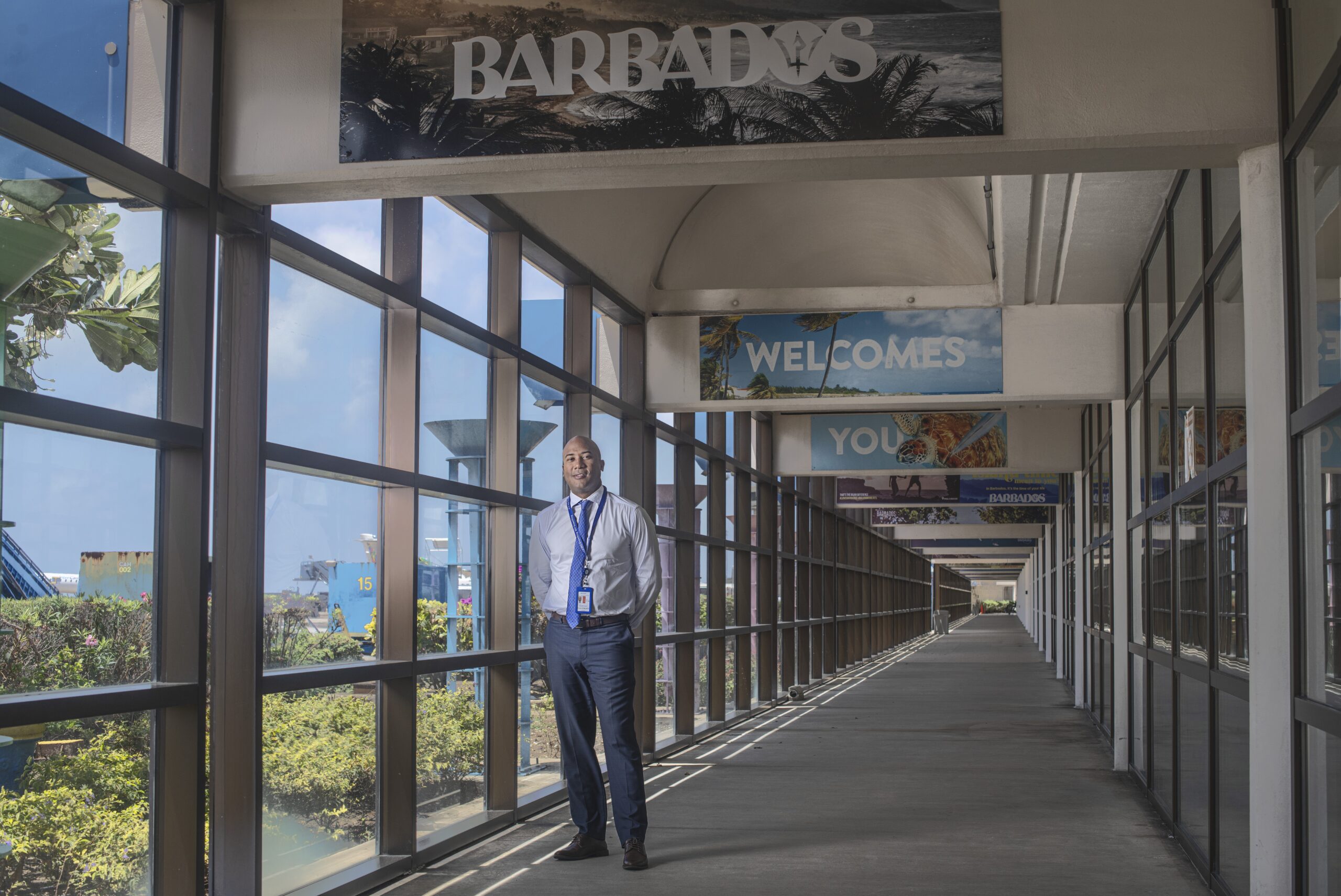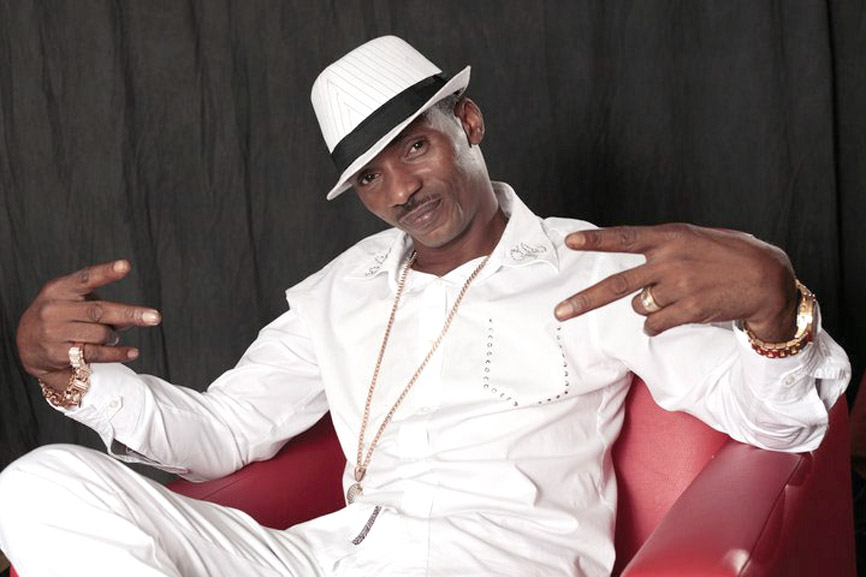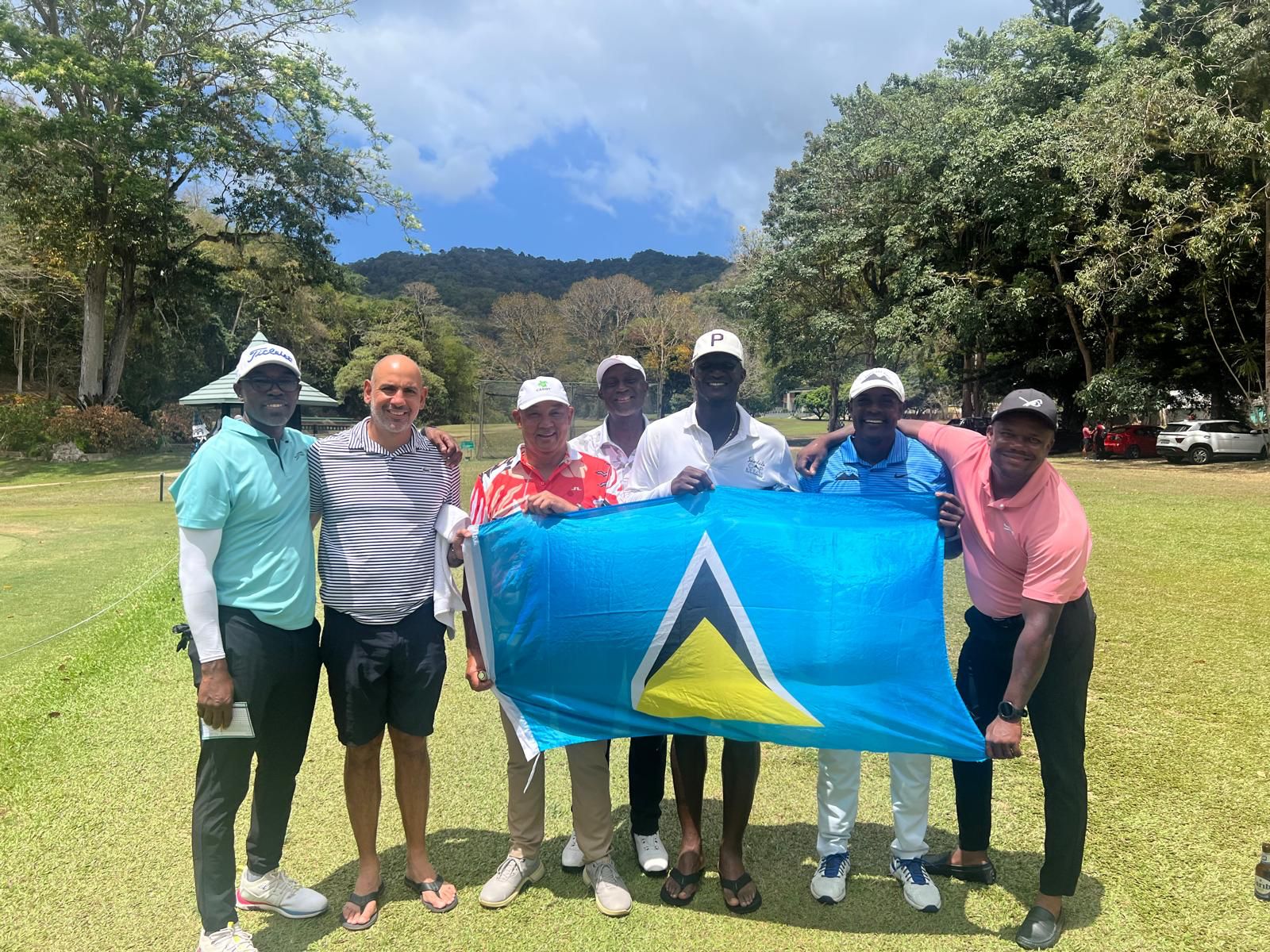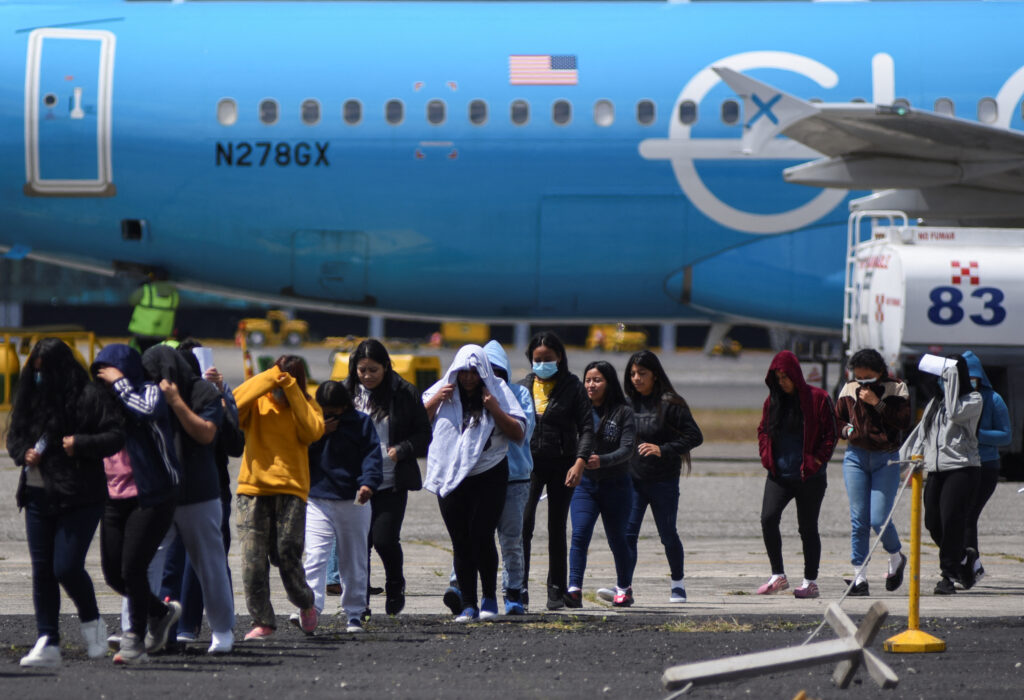

Just before Piétrick Voyer was announced as Airport Leader of the Future, he was texting his family back in Martinique.
“I don’t think I’ll get it.”
Then he got it.
“I was like… wow, this is crazy,” he says, shaking his head.
He was seated among aviation luminaries—leaders from some of the world’s most influential airports. He looked up from his phone. All eyes were on him.
He texted again, “I got it!”
Back at Grantley Adams International Airport in Barbados (GAIA), where he served as Director of Operations for two years, no one was surprised.
A Leader Who Puts People First
Ask anyone at GAIA, and they’ll tell you that the airport feels different now.
It’s not on a dashboard. It’s in the tone of Monday meetings, the calm when unexpected things happen, the way teams now speak up during meetings and feel heard. It’s in the shift Piétrick describes when he says, “You can have the best technology in the world… but if the people do not follow, if they do not understand, nothing will work.”
On paper, Piétrick has what you’d expect from a national airport operations director— global experience, fluent in multiple languages, career stops from New Jersey to Germany to Abu Dhabi. But that’s not what people talk about.
They talk about how he moves through the airport, greeting staff by name. How facilitation meetings feel different now — as one colleague put it, “. . . people are more comfortable contributing.” How he listens and follows through.
He starts each week in conversation, not command.
Because for Piétrick, leadership doesn’t start with metrics. It starts with people.
“At the end of the day, we’re all human,” he says. “It’s about respect. It’s about listening. It’s not about showing off. It’s about keeping people at the centre.”
If you ask him what he’s most proud of, he won’t lead with key performance indicators (KPIs). He’ll first tell you about fixing the baggage delays that once frustrated travellers or about the people hauling bags, stamping passports, scrubbing floors — all moving in sync now.
Not because someone told them to. But because they want to. They feel part of something shared.
“Airports are emotional spaces,” he says. “We’re the first hello and the last goodbye.”
Legacy in Motion
He focuses on small, meaningful moments: A smooth arrival. A first impression that is so clean it frames your entire trip.
He doesn’t chase performance for its own sake and yet, performance has followed.
Oliver Haywood, a near-historian of the airport and former head of the Barbados Airlines Association, says: “What Piétrick has done—that’s not normal operations. That’s culture work. That’s legacy-building. I’ve seen decades of change at GAIA—and this, what we’re seeing now, this is legacy in motion.”
“He’s the first one in years to make me feel like the baton has been passed to the right person,” Haywood added.
Piétrick’s legacy isn’t loud. It’s woven in the dashboards that stakeholders now rely on. In the “Airport Insights” sessions he hosts, where he asks staff to reflect on what’s working—and what’s not. In the way meetings start with acknowledgment, not agenda.
Where it all Started
His first job in aviation? A check-in agent in Newark.
During a winter storm, a woman came to the check-in counter crying. She was going to her mother’s funeral and needed to get home. There were no flights. That moment stuck with him — not just for the emotion but for what it taught him about staying calm under pressure.
“If I panic, my team will panic,” he says. “So I stay calm.”
It taught him that composure isn’t just about appearances — it’s about creating space to make the right decision.
It’s a worldview shaped not just by experience but by his favourite book, The Little Prince — one he says taught him simplicity, gratitude, and how to cherish what you have.
“There’s a part in The Little Prince where he sees many roses but realises his rose is special. Not because it’s the only one, but because of the time he gave it. That really stayed with me. You have to cherish what you have. Be grateful. Be kind to each other.”
Operational Shifts, Human Impact
He’s led a range of operational upgrades and cultural shifts: from redesigning curbside flow to refreshing the airport’s look and feel, from upgraded scanning machines for passenger screening to brighter bin colours that signal pride and care. He’s introduced an international customer experience accreditation to bring GAIA in line with the world’s best airports, thoughtfully scaled to fit Barbados.
Because while most see airports as machines and numbers, Piétrick sees something else . . .
Human spaces. Places where memory, movement, and emotion intersect.
He’s made data work for people — not the other way around.
And most importantly, he’s rebuilt trust.
And for GAIA Chief Executive Officer (CEO) Hadley Bourne, that trust-building wasn’t just welcome, it was overdue.
“Piétrick has been able to galvanise the community the way we’ve been hoping — to bring back GAIA to how it was in its heyday,” says CEO Bourne. “One of the strategic objectives when he joined was to restore that one-community type atmosphere — something GAIA had, even before it became a private entity. I wanted that type of atmosphere again, and he was instrumental in starting that resurgence of community spirit.
He’s seen a shift in operational leadership, too. “What I’m most inclined to mention — and happiest about — is how we present data under Piétrick’s guidance,” Bourne says. “Before, we were collecting a lot of data within the operations team. But how Piétrick breaks it out, dashboards it, and shares it to the various stakeholders is probably one of the initiatives that was lacking prior. That kind of thinking and skillset was exactly what we were looking for in a Director of Operations. Hence why he’s on board.”
Their relationship is rooted in space and respect. “He gives me a lot of space to express, to implement, to use my knowledge,” Piétrick says. “But when I’m not right, he’ll tell me too.”
The Person Behind the Role
You’d never guess it, but it wasn’t always smooth landings for Piétrick.
After high school, he fell into a depression. For three years, he didn’t study. Barely left home. It was his friends who banged on the door when he stopped responding — and his father who quietly begged a university to give him one more chance.
From that experience, he learned to ask for help. To accept support without shame. To understand that untreated pain doesn’t disappear, it spreads.
“If you get injured and don’t treat the wound, it can get infected. It’s the same for your mind,” he says. “We all go through things we don’t always understand. But if you don’t face them, they’ll show up in every part of your life.”
The experience has also shaped his leadership. It taught him to listen deeply. To stay humble. To never pretend he has all the answers — and to never expect his team to either.
“I do it with my team. I need their help. They know the operation better than me — but together, we’ll find the solution to move forward.”
Now, he starts every morning with five minutes of gratitude. He walks the beach alone on Sundays. His me time, his reset.
“At the airport, the energy is constant — it’s noisy, it’s fast-paced, anything can happen,” he says. “But the beach gives me space to breathe. To stay grounded.”
Looking Ahead
As Airport Leader of the Future, Piétrick is shaping GAIA into an airport of the future — not just high-tech, but high-trust. Not just efficient, but people-first.
Looking ahead, Piétrick envisions a fresh wave of technology, sustainability initiatives, and stakeholder collaboration that will keep GAIA growing alongside the evolving demands of global air travel.
This includes things people notice — like upgrading the Wi-Fi — but also behind-the-scenes improvements, like reducing paper and moving to more sustainable, digital systems.
“When I first came, it was a lot of paper,” he adds. “And I thought — we can’t cut trees like this, especially in a time where sustainability is a huge topic. So now we’re digitalising how GAIA works, including how our teams do day-to-day work.”
He is building a culture where the customer includes everyone who walks through the gate—from travelers to the guy buying a snack at Chefette.





